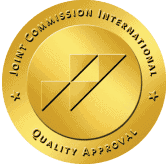You deserve compassionate, evidence-based treatment that addresses both your addiction and underlying concerns. Professional treatment centers in California have helped thousands of individuals break free from stimulant dependency and rebuild their lives. Take your first step toward recovery today.
What are the warning signs of Adderall addiction?
You may be experiencing Adderall addiction if you recognize these critical warning signs. Professional treatment centers understand that stimulant addiction often develops gradually, making early recognition essential for successful recovery.
Physical warning signs you might notice:
- Taking higher doses than prescribed or using Adderall more frequently
- Experiencing intense cravings when the medication wears off
- Continuing to use Adderall even when it causes problems in your relationships or work
- Feeling unable to function normally without the medication
- Engaging in risky behaviors to obtain more Adderall
- Experiencing rapid heartbeat, elevated blood pressure, or irregular breathing
- Significant appetite loss leading to unhealthy weight loss
- Sleep disturbances, including insomnia or disrupted sleep patterns
- Tremors, muscle pain, or physical agitation
- Headaches or dizziness when not using the medication
Psychological and behavioral signs you may experience:
- Anxiety, paranoia, or panic attacks
- Mood swings, irritability, or aggressive behavior
- Depression when not using Adderall
- Difficulty concentrating without the medication
- Social isolation or withdrawal from family and friends
- Neglecting responsibilities at work, school, or home
- Lying about your Adderall use or hiding your consumption
- Spending excessive time thinking about or obtaining Adderall
- Using multiple doctors or pharmacies to get prescriptions
- Feeling hopeless about your ability to stop using
If you recognize these signs, you’re not alone. Treatment centers specializing in stimulant addiction report that approximately 4.5 million individuals in the U.S. struggle with stimulant use disorders, yet only about 888,000 receive the treatment they need.
What happens during Adderall withdrawal?
You may experience challenging withdrawal symptoms when stopping Adderall use, especially after prolonged or high-dose consumption. Understanding these symptoms helps you prepare for the recovery process and recognize why professional support is essential.
Early withdrawal symptoms you might face:
- Severe fatigue and exhaustion lasting several days
- Depression, mood swings, and emotional instability
- Intense cravings for Adderall
- Sleep disturbances, including insomnia or excessive sleepiness
- Anxiety, restlessness, and agitation
- Difficulty concentrating or focusing on tasks
- Increased appetite and potential weight gain
- Nausea, stomach aches, or digestive issues
- Headaches and physical discomfort
- Irritability and mood changes
Extended withdrawal effects you may encounter:
- Persistent depression lasting weeks or months
- Cognitive difficulties, including memory problems
- Lack of motivation or interest in activities
- Social anxiety and withdrawal from relationships
- Sleep pattern disruptions
- Physical weakness and reduced energy levels
- Difficulty experiencing pleasure (anhedonia)
- Continued cravings that may trigger relapse
Professional treatment centers emphasize that withdrawal symptoms typically begin within 24-48 hours after your last dose and can persist for several weeks. The severity and duration depend on factors like your usage patterns, dosage levels, and individual physiology.
The most effective treatment approaches for Adderall addiction
Treatment centers specializing in stimulant addiction use evidence-based therapies proven effective for Adderall dependency. You’ll benefit from approaches specifically designed to address the unique challenges of stimulant addiction.
Cognitive-behavioral therapy (CBT) helps you:
- Identify triggers and situations that lead to Adderall use
- Develop healthy coping strategies for stress and challenges
- Change thought patterns that contribute to addictive behaviors
- Build problem-solving skills for daily life situations
- Create relapse prevention plans tailored to your needs
- Address underlying mental health conditions like ADHD or depression
Contingency management (CM) provides motivation through:
- Reward systems for maintaining abstinence from Adderall
- Positive reinforcement for attending therapy sessions
- Incentives for completing treatment milestones
- Structured accountability measures
- Goal-setting and achievement recognition
Group therapy offers you:
- Peer support from others facing similar challenges
- Shared experiences and recovery strategies
- Accountability and encouragement
- Social skills development
- Reduced isolation and shame
Family therapy addresses:
- Communication patterns that may contribute to addiction
- Family dynamics and relationship healing
- Education about addiction and recovery
- Support system strengthening
- Boundary setting and healthy relationships
Research shows that contingency management is particularly effective for stimulant addiction, with studies demonstrating longer periods of abstinence and higher treatment completion rates compared to other approaches.
Why choose specialized Adderall addiction treatment?
You need treatment specifically designed for stimulant addiction because Adderall affects your brain differently than other substances. Treatment centers with stimulant specialization understand the unique challenges you face and provide targeted interventions.
Specialized treatment addresses your specific needs:
- Medical professionals trained in stimulant addiction management
- Withdrawal protocols designed for amphetamine-based medications
- Therapy approaches proven effective for stimulant dependency
- Understanding of ADHD and legitimate medication needs
- Dual diagnosis treatment for co-occurring mental health conditions
- Relapse prevention strategies specific to stimulant triggers
You’ll receive comprehensive assessment including:
- Medical evaluation of your physical health and withdrawal risks
- Psychological assessment of mental health conditions
- Addiction severity evaluation and treatment planning
- ADHD assessment to determine legitimate medication needs
- Social and family situation evaluation
- Educational and occupational assessment
Treatment centers provide coordinated care through:
- Medical doctors specializing in addiction medicine
- Licensed therapists with stimulant addiction expertise
- Psychiatric professionals for medication management
- Case managers to coordinate your care
- Peer support specialists with lived recovery experience
- Family counselors to address relationship issues
Professional treatment centers report success rates significantly higher than self-directed recovery attempts, with structured programs showing 60-80% completion rates and sustained abstinence periods.
What to expect during your treatment journey
You’ll progress through a carefully structured treatment process designed to support your recovery at every stage. Treatment centers create individualized plans that adapt to your changing needs and progress.
Your initial assessment and planning phase: When you first contact a treatment center, you’ll receive a comprehensive evaluation within 24-48 hours. This assessment determines your appropriate level of care and creates your personalized treatment plan. You’ll meet with medical professionals, therapists, and case managers who will coordinate your care.
Your early treatment experience: You may begin with drug rehab if you need medical supervision for withdrawal management. During this phase, you’ll receive 24/7 medical monitoring, individual therapy sessions, group counseling, and addiction education. Your treatment team will address any co-occurring mental health conditions and begin building your recovery foundation.
Your transition to structured outpatient care: As you progress, you may move to PHP, attending treatment 6-8 hours daily while returning home each evening. You’ll participate in intensive therapy, skill-building groups, and peer support activities. This phase helps you apply recovery skills while maintaining family and work connections.
Your continued recovery support: You’ll transition to IOP, attending treatment 3-4 times weekly for several months. This phase focuses on relapse prevention, ongoing therapy, and real-world application of recovery skills. You’ll receive continued support while resuming normal daily activities.
Your long-term recovery maintenance: Finally, you’ll participate in OP for ongoing support and monitoring. This phase includes weekly therapy sessions, monthly group meetings, and access to support resources. You’ll maintain a connection with your treatment team while living independently in recovery.
Contact Assure Recovery
Don’t wait another day to begin your recovery from Adderall addiction. Help is available now, and you deserve compassionate, professional treatment that addresses your unique needs.
Call Assure Recovery today at (833) 530-0291 to speak with an addiction specialist who understands stimulant dependency. You’ll receive a confidential assessment and learn about treatment options that can help you break free from Adderall addiction.



